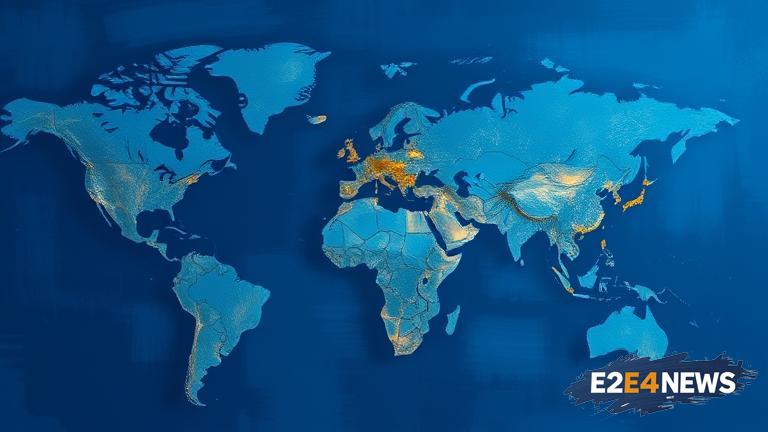Intel, the renowned American multinational corporation and technology company, has recently expressed concerns that a substantial US stake in the company could have far-reaching consequences on its international sales and future grants. The company’s warning comes amidst rising trade tensions and geopolitical uncertainties, which have been affecting businesses worldwide. Intel’s concerns are rooted in the potential for trade restrictions and protectionism, which could limit the company’s ability to operate freely in international markets. The company has been a significant player in the global technology industry, with a diverse range of products and services that cater to various sectors. However, with the increasing scrutiny of US companies operating abroad, Intel is wary of the potential backlash that could arise from a significant US stake. The company’s international sales have been a crucial component of its revenue, and any disruption to these sales could have a significant impact on its financial performance. Furthermore, Intel is also concerned about the potential impact on its future grants, which are essential for funding research and development initiatives. The company has been at the forefront of innovation, and any reduction in grants could hinder its ability to develop new technologies and stay competitive in the market. Intel’s warning is not unfounded, as several US companies have faced challenges in international markets due to trade restrictions and geopolitical tensions. The company’s concerns are also reflected in its efforts to diversify its supply chain and reduce its dependence on any one market. Intel has been investing heavily in emerging technologies, such as artificial intelligence, 5G, and the Internet of Things (IoT), which are expected to drive growth in the future. However, the company’s ability to capitalize on these opportunities could be hindered by trade restrictions and protectionism. The US government has been taking steps to protect American companies operating abroad, but Intel’s warning highlights the need for a more nuanced approach that balances national security concerns with the need to promote international trade and cooperation. The company’s concerns are also relevant to other US companies operating in the technology sector, which face similar challenges in international markets. As the global economy becomes increasingly interconnected, companies like Intel must navigate complex geopolitical landscapes to remain competitive. The potential consequences of a significant US stake on Intel’s international sales and future grants are far-reaching and could have a significant impact on the company’s financial performance and ability to innovate. In conclusion, Intel’s warning highlights the need for a balanced approach to trade policy that promotes international cooperation and reduces the risk of trade restrictions and protectionism. The company’s concerns are a reminder that the global economy is increasingly interconnected, and that companies must be able to operate freely in international markets to remain competitive. As the technology sector continues to evolve, companies like Intel must be able to navigate complex geopolitical landscapes to capitalize on emerging opportunities. The potential consequences of a significant US stake on Intel’s international sales and future grants are a reminder of the need for a nuanced approach to trade policy that balances national security concerns with the need to promote international trade and cooperation.
